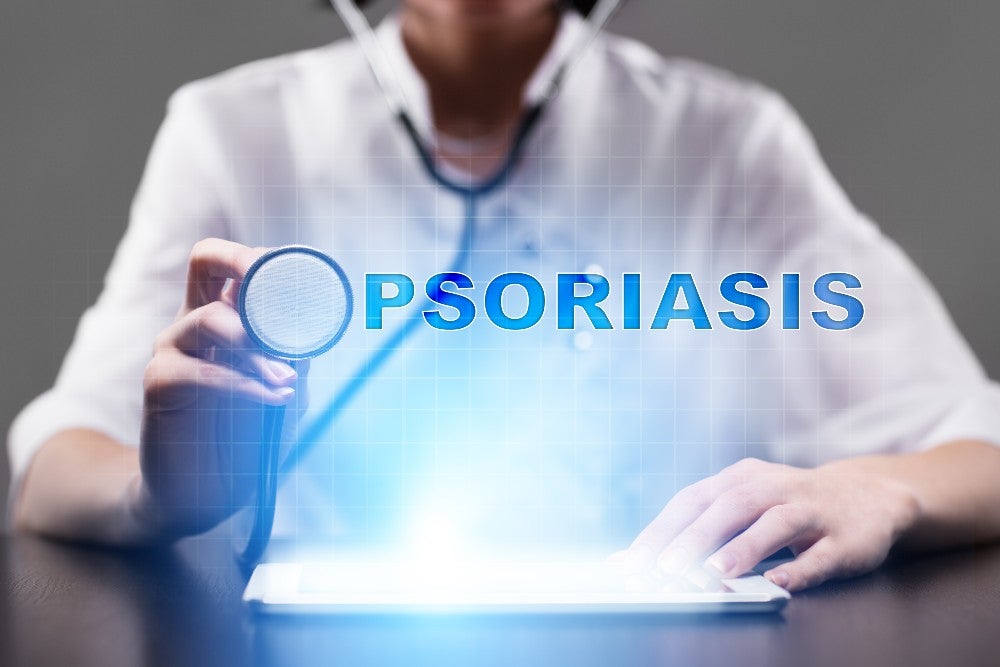Janssen Pharmaceuticals of Johnson & Johnson (J&J), a key player in the biopharmaceutical space, announced on 4 July its latest clinical trial results of JNJ-2113, the novel, first-in-class oral interleukin 23 receptor (IL-23R) antagonist peptide in adult patients with moderate-to-severe plaque psoriasis (PsO).
According to the reported topline findings from the Phase IIb clinical trial, JNJ-2113 achieved all primary and secondary efficacy endpoints, demonstrating complete clearance and improvement in skin lesions of trialled participants when compared to the respective placebo groups, indicating the potential of the agent to transform the treatment landscape for PsO (Janssen, press release, July 4, 2023).
According to an article by Damiani and colleagues in Frontiers in Medicine, PsO is a systemic immune-mediated dermatological condition, which affects 2–3% of the world’s population and is linked to physical effects and debilitated quality of life.
JNJ-2113 is an innovative oral therapy that specifically targets and binds with high affinity to the IL-23R, a driver and critical element in the pathogenesis of immune-mediated inflammatory diseases, including PsO, with unique characteristics that enable its absorption through oral dosing. By selectively blocking IL-23/IL-23R signalling and the production of inflammatory cytokines downstream, JNJ-2113 offers a distinctive and effective approach to managing PsO.
The efficacy of JNJ-2113 was reinforced by J&J’s randomized, multicenter, double-blind, placebo-controlled, 24-week Phase IIb FRONTIER 1 (NCT05223868) clinical trial, which evaluated three once-daily dosages and two twice-daily dosages of the agent taken orally by patients with moderate-to-severe plaque PsO and which forms the basis for the agent’s progression to Phase III development.
The results of the trial were evaluated in relation to the Psoriasis Area and Severity Index (PASI), with a PASI 75 at Week 16 being the primary endpoint and a PASI 90 and PASI 100 at Week 16 versus the placebo arm being the co-secondary endpoints. Results indicated the proportion of patients who achieved PASI 75 was 9.3% for the placebo group, and 37.2%, 51.2%, 58.1%, 65.1%, and 78.6% of patients for the 25mg once-daily, 25mg twice-daily, 50mg once-daily, 100mg once-daily, and 100mg twice-daily JNJ-2113 groups, respectively, at Week 16.

US Tariffs are shifting - will you react or anticipate?
Don’t let policy changes catch you off guard. Stay proactive with real-time data and expert analysis.
By GlobalDataSimilarly, the proportion of patients who achieved PASI 90 was 2.3% for the placebo group, and 25.6%, 26.8%, 46.5%, 51.2%, and 59.5% for the 25mg once-daily, 25mg twice-daily, 100mg once-daily, 50mg once-daily, and 100mg twice-daily treatment groups, respectively, at Week 16. Notably, JNJ-2113 demonstrated dose-dependent responses across primary and secondary endpoints, revealing substantial percentages of patients achieving PASI 75, PASI 90, and even PASI 100. These outcomes underscore the impressive efficacy of JNJ-2113 in treating moderate-to-severe plaque psoriasis.
Additionally, JNJ-2113 was generally well tolerated by the treatment groups, with no evidence of a dose-dependent increase in specific adverse events. The most frequent system organ class affected by adverse events in both treatment and placebo arms was infections and infestations, with the most common cases being Covid-19, nasopharyngitis, and upper respiratory tract infections.
The promising results for JNJ-2113 represent just one facet that will weigh positively for the agent. With advanced psoriasis treatments having largely been limited to injectable biologics, JNJ-2113 offers the opportunity to address patient needs and preferences by providing an oral therapy that directly targets the IL-23 pathway. This may bring about greater treatment adoption and consequently improve patient outcomes.
According to GlobalData’s Pharma Intelligence Center Drugs Database, with an analyst consensus global sales forecast of $292m by 2029, JNJ-2113’s oral route of administration offers it the opportunity to differentiate itself from other anti-IL-23 inhibitors. Preliminary data suggests that it may have a higher PASI 75 response than Bristol Myers Squibb’s Sotyktu (deucravacitinib), another IL-23R antagonist.
However, indirect comparisons should be made with caution due to differences in trial design and patient populations. Overall, and as JNJ-2113 progresses toward Phase III clinical development, GlobalData understands that the positive clinical trial results highlight the agent’s potential to become a transformative therapy for moderate-to-severe PsO.





